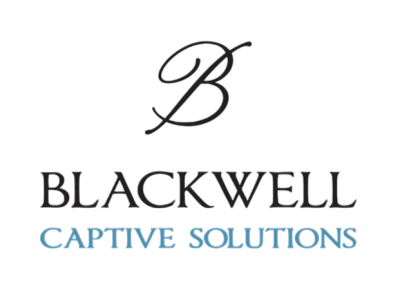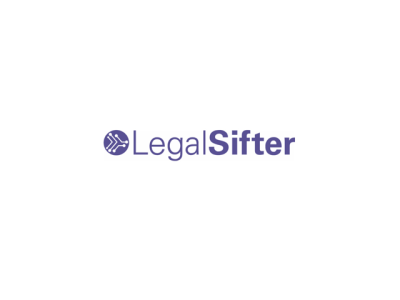What does Flatiron School do?
Flatiron School is an online and in-person school with the goal of empowering people to pursue a better life through education.
The current higher education system does not always meet the needs of a modern learner and has not been able to answer workforce demand. Recognizing that, we prepare people for the evolving job market by teaching job-ready technical skills across software engineering, data science, cybersecurity, and product design so that our students can start an entirely new career or advance in their current job. In almost 15 years, Flatiron School has helped nearly 30,000 students gain the skills they need for success.
In addition to our consumer programs, we have expanded partnerships at the enterprise and university level, to enable those institutions to offer outcomes-oriented training to their communities. These relationships, together with our nearly 30,000 alumni, act as a hiring network with connections in major tech companies worldwide and ninety-one of the Fortune 100.
What attracted you and why did you join?
Earlier in my career, I was involved with start-up accelerator programs where I had a window into the talent struggles of our portfolio companies. They could not find enough engineers nor designers that had the right skill sets to work in the startup ecosystem. After unsuccessful attempts with universities that were not interested in adjusting their curriculum to meet job market demands, we decided to create our own talent source. In 2011, around the time Flatiron was established, we started a boot camp called The Iron Yard inside of our accelerator.
All this is to say that I knew what Flatiron was about. I had lived the contagious experience of watching someone in a low-pay, dead-end job be transformed in as little as six months into a happy, well-compensated person who could suddenly afford a better life for their family. I cannot think of another career outside of the nonprofit sector where I could have that kind of positive impact on another person’s life.
After I sold The Iron Yard to a public company, I agreed to come over to Flatiron as a consultant. Within about six months, I fell in love with the team and joined full-time in 2018. Since then, I have worn a bunch of different hats but have primarily led product and operations alongside the founder and early team until becoming the CEO in 2023.
How is Flatiron School working with enterprise businesses?
The growing role of tech in all businesses has created a high demand for people who know how to code and understand their specific technical requirements. This has created a growing need for Flatiron talent, and we have had great success with national organizations like Amazon. But we are also seeing our consumer brand and our university partnerships play a big role in driving our enterprise business.
As we have thought about how to tackle a region, we have discovered the value of our university partnerships in providing a springboard to expand into serving corporates in that same region. In working with a local partner like SMU, it allows them to stand up another revenue stream and offer more capabilities. It also gives us another channel to market the SMU program powered by Flatiron School, which has more regional weight than Flatiron School alone in Texas. This has opened the door to do more business in the state with organizations like American Airlines, IBM, and United Healthcare. We are now in the process of taking this approach with several universities around the country.
How does Flatiron School work with higher education?
Companies are increasingly looking beyond traditional colleges to train their current employees or hire recent graduates. Universities have recognized that their programs do not fit the needs of all students and are adapting to meet changing demands. In response, Flatiron has expanded to offer partnerships at the university level, which enables those institutions to offer turn-key and outcomes-obsessed programs. Flatiron School provides higher education institutions with a rigorous and proven curriculum, purpose-built platform, and the ability to bring in our own world-class and student-focused instructors. Our work with higher education has included partnerships with top-tier universities around the world, including Cambridge, Harvard, Yale, University of North Carolina, and SMU.
How has Flatiron been impacted by AI as it has become more mainstream?
Our use of AI has evolved in different and unexpected ways; creating opportunities for corporates, expediting how we produce the content, and even achieving internal efficiencies.
Most large corporations we spoke to are struggling with adoption. They want to capture efficiencies, but they can’t get their people to embrace the change and the opportunity. So, we have filled an interesting role. We took non-technical managers and explained what AI does, how it works, and how they might think about it. We found that throwing out work context and using real world examples like buying a car, planning a vacation, and making up bedtime sories for their kids, was actually the best way to teach them how to embrace the creative nature of AI.
In developing curriculum, AI makes it much more cost-effective for us to think about scaffolding something new. We can bring in a subject matter expert, integrate with AI, build an initial scaffold, and then we are able to spend our time on the final 20% of editing and fine-tuning to match each subject or organization’s needs.
Interestingly, we have also used AI for internal optimization. To alleviate the work of our after-hours tech support/tutoring team that helped students stuck on assignments, we built an AI solution embedded in the LMS. It offered students a real-time chat option as an alternative to waiting for a live tutor. Despite offering an “I want to talk to a human” button, the students almost always opted for the chat and would typically have their question answered within three exchanges.
How has Carrick Capital Partners supported you and assisted Flatiron School?
Carrick has been a great partner. They are available and involved with all elements of the business. In supporting our growth, they have been willing to open their rolodex and make introductions to universities, corporations, and other potential partners. In meetings I will express an interest in targeting a new customer and they will immediately respond with proactive suggestions about who among them has the strongest relationships and will make the introduction.
They have also been especially valuable in helping us to think through necessary strategic change. When there have been shifts in our industry impacting the business, members of their team have worked with us hand-in-hand to determine the right pivots the business should make. This has also applied to times of financial restructuring where they have rolled up their sleeves, leveraged their relationships and expertise, and gone to bat for us.
Because they are somewhat smaller than some other PEs, I get full attention of senior leadership and their wealth of operational experience, M&A expertise, and financial relationships.
What is your advice for other growing businesses considering private equity?
The right private equity partner provides much more than capital. They can support your business as you wrestle with issues like industry changes, operational obstacles, go-to-market challenges, and financial hurdles. To benefit from this level of support, make sure you choose a partner that has applicable expertise, an interesting and diverse portfolio with at least some parallels, and the time and attention to prioritize your business. You may want to consider a smaller firm so you can get hands-on involvement from a partner who is really invested in your success. I have worked with larger and smaller PE partners, and the difference is night and day.
What are your long-term goals for Flatiron School?
My long term goals are to build a large, impactful business for the long haul in education and to achieve the mission of the company. That mission has remained unchanged since the company was founded in 2011; to enable the pursuit of a better life through education, and to do it at scale through our consumer, university, and enterprise channels so that we can help more people improve their lives with education.
What initiatives are you planning for the near-term?
I believe we are about to enter a season of significant change, partly because of the recent election. Any changes to the Department of Education will have major ripple effects on how education works throughout K-12, higher education, and corporate education. So as my executive team and I think about Flatiron School in this uncertain environment, we know we need to be nimble. Circumstances could open opportunities to do more with universities, or they could create a situation where universities scale back to focusing on their core business.
Given what we do -- the technical expertise, short-form, vocationally aligned education -- we are well situated to take advantage of disruption in the industry. I think that is inevitable in the next couple of years, partly because of change in the political regulatory environment, but also because of what AI is bound to do in our space. As AI gets better, there will be increased opportunity to have more contextualized, personalized learning and to be able to stand up new and modern curriculum quickly. I think we built the reputation, and we are in the right place -- being on the forefront of deep technical education -- to be one of the companies that is innovating in this space.
We are at a unique moment in time where those two things are happening simultaneously, which will mean large-scale disruption in the education space. This should be a good opportunity for Flatiron School to be on the offensive and either grow organically or consolidate with other interesting companies in the industry.






